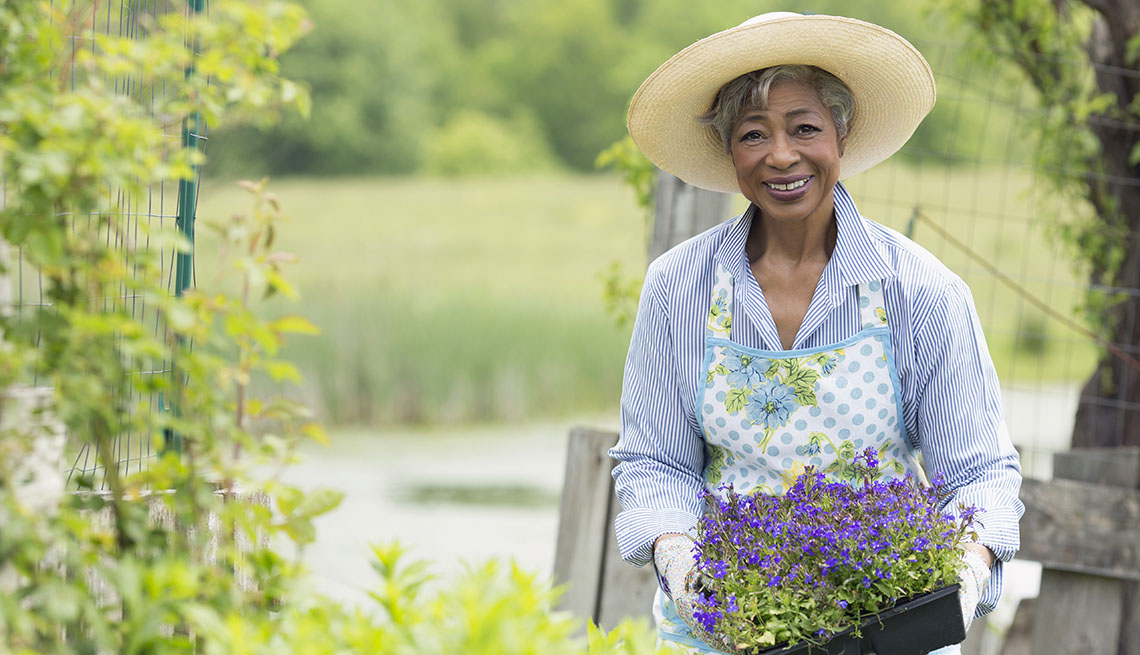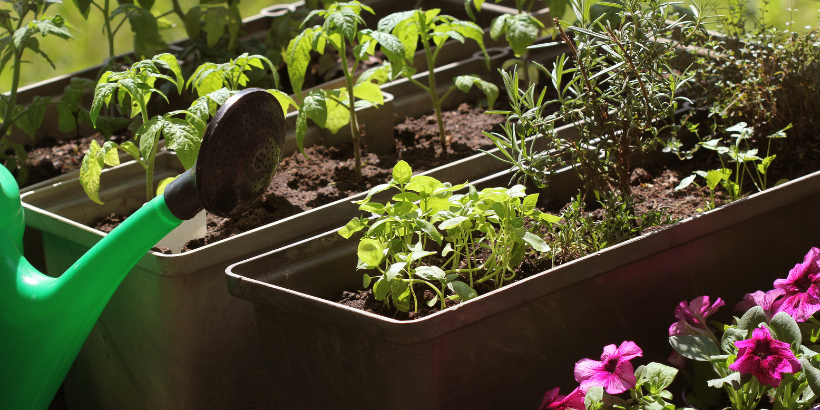Exactly How Gardening Can Improve Your Health And Wellness and Wellbeing
Exactly How Gardening Can Improve Your Health And Wellness and Wellbeing
Blog Article
Understanding the Different Sorts Of Gardening and How They Contribute to a Healthier Way Of Life and Atmosphere

Advantages of Vegetable Horticulture
Numerous individuals are increasingly identifying the myriad benefits of vegetable gardening as an essential part of a healthier lifestyle. Taking part in veggie horticulture provides many physical health benefits, consisting of raised physical activity, which boosts cardio health and advertises general physical fitness. The act of planting, weeding, and harvesting calls for motion and can help combat less active actions, adding to weight administration and improved muscle mass tone.
Additionally, cultivating one's own vegetables dramatically enhances nutritional high quality. Organic fruit and vegetables is often fresher and extra nutrient-dense compared to store-bought alternatives, as it can be consumed shortly after harvest. This availability encourages a better consumption of fruits and vegetables, which are important for avoiding chronic illness.
Furthermore, veggie horticulture fosters psychological well-being by supplying a therapeutic electrical outlet for anxiety relief and relaxation. The act of tending to plants can be meditative, enabling individuals to attach with nature and get away the stress of every day life. The sustainable practice of expanding one's very own food reduces reliance on business agriculture, adding to ecological conservation and advertising biodiversity. Jointly, these advantages emphasize the value of veggie horticulture as a keystone of a healthier way of living.
Exploring Flower Horticulture

In addition to visual benefits, flower gardening sustains local ecosystems. Several blooming plants bring in pollinators, such as and butterflies, which are important for preserving biodiversity. The existence of diverse flora can likewise boost dirt health, as numerous plants contribute to nutrition biking and improve dirt framework.
Additionally, flowers can play a considerable role in promoting sustainable techniques. Lots of gardeners choose indigenous or drought-resistant species, which need much less water and minimal chemical inputs. This strategy not only benefits the atmosphere but additionally motivates responsible gardening routines.
Inevitably, blossom horticulture works as a vital component of a holistic horticulture method. Gardening. By growing charm and supporting regional communities, it harmonizes with vegetable horticulture and highlights the significance of supporting both our physical and mental well-being through nature
Container Horticulture Advantages
Container gardening offers many advantages that make it an enticing alternative for both novice and knowledgeable garden enthusiasts. Among the primary advantages is its flexibility; containers can be positioned on outdoor patios, porches, or perhaps inside, permitting for horticulture in spaces with minimal ground access. This flexibility makes it possible for people in urban environments or those with tiny lawns to cultivate plants properly.
In addition, container horticulture provides improved control over dirt high quality and wetness levels. Garden enthusiasts can select certain dirt mixes to optimize plant health and mitigate issues like weeds and bugs. The flexibility of containers also permits for easy relocation to maximize sunlight direct exposure or safeguard plants from stormy weather.
Furthermore, container gardens can be visually pleasing, providing a chance for imagination in design. Gardening. They can function as ornamental aspects that enhance outside or interior rooms while promoting biodiversity by drawing in pollinators
Last but not least, container gardening can add to a much healthier way of living by urging physical activity, as it commonly involves lifting, planting, and maintaining plants. Generally, the advantages of container gardening make it an easily accessible and satisfying technique for those seeking to boost their lifestyle and setting.
The Rise of Upright Gardening
As urban areas end up being increasingly crowded, the fad of upright horticulture has actually taken off, allowing people to optimize their horticulture possibility in minimal locations. This ingenious method involves expanding plants in upright frameworks, such as wall-mounted planters, trellises, or specialized vertical garden systems. The charm of upright gardening exists not just in its effective use of space yet likewise in its aesthetic payment to urban environments, changing bare walls right into rich eco-friendly landscapes.
Vertical yards can be installed in homes, balconies, and area rooms, supplying a platform for growing a range of plants, including herbs, vegetables, and ornamental flowers. This approach encourages biodiversity and can boost air high quality by filtering pollutants while promoting a connection to nature in largely populated areas. Furthermore, upright gardening provides sensible advantages, such as boosted yield per square foot, making it an appealing alternative for urban gardeners looking for to grow their own food.

Lasting Practices in Gardening
Accepting lasting practices in horticulture is crucial for promoting ecological wellness and guaranteeing the practicality of our all-natural sources. Sustainable gardening strategies concentrate on minimizing environmental influence, saving water, and cultivating biodiversity. By carrying out practices such as organic horticulture, gardeners can reduce making use of artificial fertilizers and chemicals, which can hurt local environments.
Friend growing is another efficient lasting approach, where particular plants are grown together to boost development and hinder insects normally. In addition, using indigenous plants in landscape design sustains local wild click site animals and calls for much less maintenance, as they are naturally adapted to the local environment and dirt conditions.
Water preservation techniques, such as rainwater harvesting and drip Continue watering, aid to successfully take care of water resources, hence minimizing waste. In addition, composting organic waste not just enriches the dirt but likewise reduces land fill payments, advertising a circular economy.
Last but not least, exercising crop turning and cover cropping boosts dirt health and lowers the threat of insect infestations. By incorporating these lasting methods, garden enthusiasts can create resilient environments that add to a healthier lifestyle while safeguarding the setting for future generations.
Final Thought

Finally, the varied approaches of horticulture, consisting of veggie, flower, container, and vertical gardening, collectively promote a healthier lifestyle and improve ecological sustainability. Each type offers distinct benefits, from giving fresh fruit and vegetables and bring in pollinators to enhancing restricted spaces and encouraging biodiversity. By fostering lasting practices, these gardening approaches not just add to private health yet additionally sustain wider ecological conservation efforts, ultimately reducing dependence on business farming read this post here and boosting area resilience.
Report this page